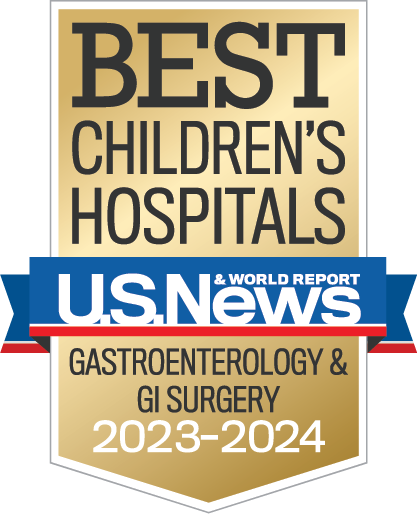- Doctors & Departments
-
Conditions & Advice
- Overview
- Conditions and Symptoms
- Symptom Checker
- Parent Resources
- The Connection Journey
- Calm A Crying Baby
- Sports Articles
- Dosage Tables
- Baby Guide
-
Your Visit
- Overview
- Prepare for Your Visit
- Your Overnight Stay
- Send a Cheer Card
- Family and Patient Resources
- Patient Cost Estimate
- Insurance and Financial Resources
- Online Bill Pay
- Medical Records
- Policies and Procedures
- We Ask Because We Care
Click to find the locations nearest youFind locations by region
See all locations -
Community
- Overview
- Addressing the Youth Mental Health Crisis
- Calendar of Events
- Child Health Advocacy
- Community Health
- Community Partners
- Corporate Relations
- Global Health
- Patient Advocacy
- Patient Stories
- Pediatric Affiliations
- Support Children’s Colorado
- Specialty Outreach Clinics
Your Support Matters
Upcoming Events
Digging Into Invasive Group A Strep
Tuesday, April 30, 2024Pediatric infectious disease experts will share best practices for...
-
Research & Innovation
- Overview
- Pediatric Clinical Trials
- Q: Pediatric Health Advances
- Discoveries and Milestones
- Training and Internships
- Academic Affiliation
- Investigator Resources
- Funding Opportunities
- Center For Innovation
- Support Our Research
- Research Areas

It starts with a Q:
For the latest cutting-edge research, innovative collaborations and remarkable discoveries in child health, read stories from across all our areas of study in Q: Advances and Answers in Pediatric Health.


Digestive Health Institute
Lactose Intolerance in Kids
We treat kids like they should be treated: like kids. That’s why we designed our hospital just for them.

What is lactose intolerance?
Lactose intolerance is the inability to fully digest lactose, which is the main type of sugar that is found in milk and dairy products.
What causes lactose intolerance in kids?
As people get older, we gradually lose the ability to digest lactose. Lactose cannot be absorbed by the intestines and used in the body unless it is digested. Lactase is the enzyme in our intestinal wall which digests lactose into two smaller sugar particles that are then easily absorbed.
As we age, lactase production decreases and in some individuals, this leads to lactose intolerance. When lactose is not digested and travels through the intestinal tract, it can lead to the development of symptoms like diarrhea. Undigested lactose is consumed by the bacteria that live normally in our large intestine leading to gas production.
Who gets lactose intolerance?
Lactose intolerance is extremely rare in infants and young children, who are born with sufficient lactase to digest milk sugar. In older children, adolescents and adults, however, lactose intolerance is a common problem. The frequency of lactose intolerance varies by race and ethnicity, with the lowest occurrence in European Americans and higher occurrence in African Americans, Hispanic Americans, Asian Americans and Native Americans.
What are the signs and symptoms of lactose intolerance?
After consuming dairy, patients with lactose intolerance may develop:
- Abdominal cramping
- Bloating
- Diarrhea
Symptoms are not immediate, and typically peak in intensity between one to three hours after the meal. People with lactose intolerance have reactions to dairy food that vary in severity. Most patients with lactose intolerance can tolerate one cup of milk at a time, but develop symptoms with larger amounts of dairy consumption. Lactose intolerance does not usually cause weight loss, blood in the stool or persistent vomiting.
What tests are used to diagnose lactose intolerance?
Specific tests that assess lactose intolerance include the lactose hydrogen breath test and measurement of enzyme levels on small intestine tissue that is sampled during an upper intestinal endoscopy procedure.
Why choose Children's Hospital Colorado for lactose intolerance tests?
Children's Colorado's Digestive Health Institute has the most up-to-date diagnostic tests for lactose intolerance and our providers are experienced with the diagnosis and treatment of lactose intolerance.
What to expect from lactose intolerance tests?
The lactose hydrogen breath test is a non-invasive test where the patient consumes a lactose-containing liquid. Every 30 minutes after drinking lactose for a total of three hours, the amount of hydrogen in the breath is measured by blowing into a machine. Higher levels of hydrogen that develop between one to three hours after ingestion indicate poorly digested sugar in the gastrointestinal tract. Specific enzyme levels, including lactase, can be measured in the intestinal lining and this requires an intestinal biopsy obtained during endoscopy.
How do doctors at Children's Colorado make a diagnosis?
Frequently, a diagnosis of lactose intolerance is made on the history that a patient readily develops symptoms between one to three hours after consuming dairy products. If the diagnosis is not clear, tests such as the lactose hydrogen breath test may be ordered.
How is lactose intolerance treated?
Lactose intolerance is a condition diagnosed and treated in the general pediatric gastroenterology clinic at Children's Colorado. The principal treatment for lactose intolerance is to avoid excessive dairy in the diet. There are a variety of different lactose-free milk options, including products that are made from soy. Lactaid™ is an oral medication that can be taken with dairy to aid in digestion of lactose.
Why choose Children's Colorado for your child's lactose intolerance?
Pediatric gastroenterologists at the Children's Colorado Digestive Health Institute have a full range of diagnostic tools for the precise detection of lactose intolerance. Our experienced registered dietitians work closely with the Digestive Health Institute providers to ensure that children with lactose intolerance achieve a full, balanced diet that promotes normal growth and development.
Next steps
-
Would you like to learn more about us?
Learn more about the Digestive Health Institute -
Do you have questions about your child’s condition?
720-777-6669 -
Want a second opinion?
Get started
Get to know our pediatric experts.

Sarah Kinder, MD
Gastroenterology - Pediatric

Caroline Hall, MD
Gastroenterology - Pediatric, Pediatrics

Allison Creager, FNP-BC
Certified Family Nurse Practitioner
Patient ratings and reviews are not available Why?

Christy Jones, PA-C
Physician Assistant



 720-777-0123
720-777-0123



